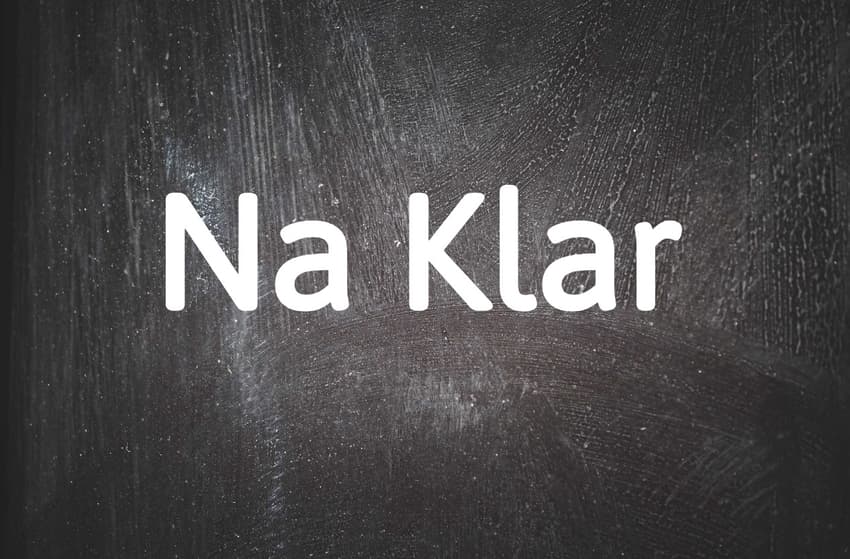German phrase of the day: Na klar

This is one of the most most common colloquial phrases you'll hear in German - but just what does it mean?
What does it mean?
The colloquial German phrase na klar is a combination of two common terms.
Na is often used to mean "well?" - for example, if one person is waiting for the other to respond.
It's also a typical greeting. "Na du" (Hey you), one good friend might say to the other when they meet up.
Klar simply means clear, transparent, or obvious. By itself, klar can mean "sure", or it can be utilized in the sense of "Der Himmel ist klar" (The sky is clear).
But when combined with na, it carried extra emphasis, and means "for sure" or "of course".
The phrase is technically considered slang, but it is used by all age groups and classes, not only teenagers.
How is it used?
This phrase is as an agreement to a question. For example, “Kommst du zu meinem Brunch am Samstag? Na klar!" ("Are you coming to my brunch on Saturday? Of course!")
Often, the popular particles ja or doch will be added to the phrase to add emphasis to an agreement, or to point out that it's obvious that you will do the thing that was asked of you.
Example uses:
Holst du mich von der Schule ab, Mama? Na klar doch.
(Are you picking me up from school, mom? Of course.)
Here, the mom adds doch, because she picks her child up from school everyday.
Magst du Kaffee? Ja, na klar! Wer denn nicht?
(Do you like coffee? Yeah, of course! Who doesn't?)
Here you would add ja to underline that you obviously like coffee.
Comments (1)
See Also
What does it mean?
The colloquial German phrase na klar is a combination of two common terms.
Na is often used to mean "well?" - for example, if one person is waiting for the other to respond.
It's also a typical greeting. "Na du" (Hey you), one good friend might say to the other when they meet up.
Klar simply means clear, transparent, or obvious. By itself, klar can mean "sure", or it can be utilized in the sense of "Der Himmel ist klar" (The sky is clear).
But when combined with na, it carried extra emphasis, and means "for sure" or "of course".
The phrase is technically considered slang, but it is used by all age groups and classes, not only teenagers.
How is it used?
This phrase is as an agreement to a question. For example, “Kommst du zu meinem Brunch am Samstag? Na klar!" ("Are you coming to my brunch on Saturday? Of course!")
Often, the popular particles ja or doch will be added to the phrase to add emphasis to an agreement, or to point out that it's obvious that you will do the thing that was asked of you.
Example uses:
Holst du mich von der Schule ab, Mama? Na klar doch.
(Are you picking me up from school, mom? Of course.)
Here, the mom adds doch, because she picks her child up from school everyday.
Magst du Kaffee? Ja, na klar! Wer denn nicht?
(Do you like coffee? Yeah, of course! Who doesn't?)
Here you would add ja to underline that you obviously like coffee.
Join the conversation in our comments section below. Share your own views and experience and if you have a question or suggestion for our journalists then email us at [email protected].
Please keep comments civil, constructive and on topic – and make sure to read our terms of use before getting involved.
Please log in here to leave a comment.